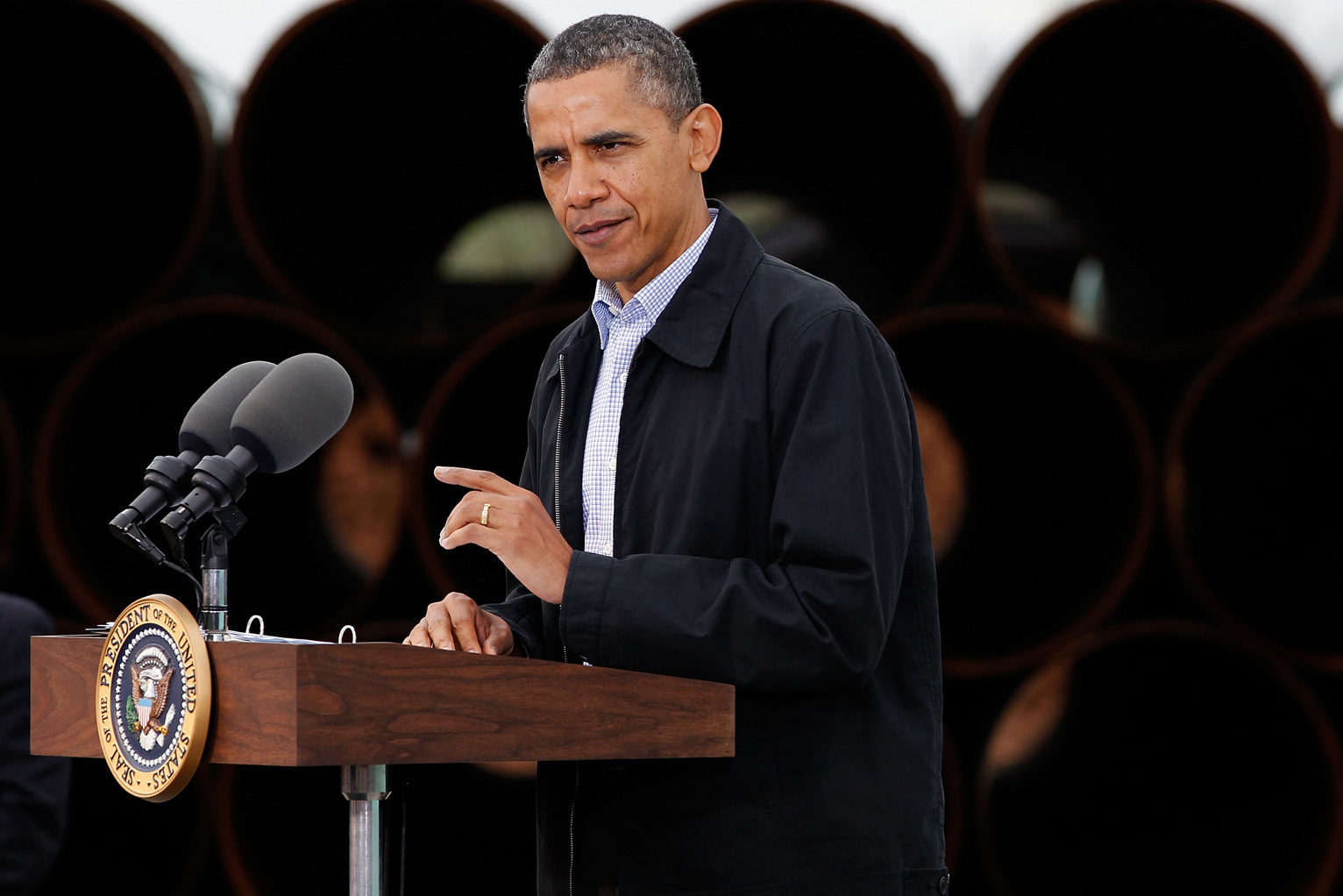Photo Credit: US News
After several years of uncertainty, President Obama struck down the Keystone XL cross-border project. After investigations regarding the necessity for this pipeline, given the uncertainty of growth in Canadian oil sands production, the U.S. State Department recently announced that it rejected the Keystone XL pipeline proposal. Secretary of State John Kerry decided the controversial project is “not in the country’s national security interest.” President Obama also publicly announced his disproval stating, “America is now a global leader when it comes to taking serious action to fight climate change, and frankly, approving this project would have undercut that leadership.” Although this appears to be a move towards a more environmentally conscious society, there has been backlash from groups who refuse to see climate change as an issue.
This project, proposed by TransCanada, sought to stretch nearly 1,200 miles across six U.S. states. The plan intends to move approximately 800,000 barrels of carbon-heavy petroleum on a daily basis, supported by Canadian oil sands through Nebraska to refineries in the Gulf Coast. On the one hand, environmentalists oppose this on the basis that it is an unconventional energy source, which requires more fuel, water, and carbon emissions than ever before. They also fear that possible pipe leaks could cause more environmental damage. On the other hand, those who support the pipeline believe that it will create mostly temporary jobs, and contribute greatly to the American economy with minimal environmental damage. In the end though, this project did require federal approval before any construction began. Currently, the U.S. and Canada have a stable economic relationship, with more than $2 billion trade per day.
The State Department has claimed the relationship as “the biggest and the most consequential economic relationship in the world.” Canadian Prime Minister Justin Trudeau expressed how he felt about the U.S. decision to reject the Keystone XL pipeline, stating, “We are disappointed by the decision but respect the right of the United States to make the decision…The government of Canada will work hand-inhand with provinces, territories, and like-minded countries to combat climate change, adapt to its impacts, and create the clean jobs of tomorrow.” Trudeau is backed by a liberal government.
While neither government has expressed frustration over the strike down, supporters, investors, and leaders whose economies and futures depend in part on oil revenue have expressed frustration with the U.S. decision to deny TransCanada’s permit to build. In one instance, presidential candidate Senator Marco Rubio (R-FL) promised to give TransCanada permission to build if he were to be elected into office. In an interview, he stated, “President Obama’s rejection of the Keystone XL Pipeline is a huge mistake and is the latest reminder that this administration continues to prioritize the demands of radical environmentalists over America’s energy security… When I’m president, Keystone will be approved, and President Obama’s backwards energy policies will come to an end.” In relation to progressive energy policies, President Obama cites U.S. environmental policy, stating, “Approving this project would have undercut that global leadership.” In another instance, presidential candidate Donald Trump took to social media, tweeting, “If I am elected President, I will immediately approve the Keystone XL pipeline. No impact on environment & lots of jobs for U.S.” It seems as if the candidates are supporting another opportunity for the Keystone XL pipeline to be approved. In relation to economic growth, President Barack Obama stated, “Keystone XL would not have benefited economic growth or lowered gasoline prices.” Research conducted by consulting group Wood Mackenzie concludes that the Keystone XL decision will not make or break Canada’s oil sector. Representatives state, “While Trudeau’s administration is not seen as the strong energy advocate as his predecessor’s, and while the situation beyond 2020 is uncertain, the group finds Canadian oil will still find its way to the U.S. Gulf Coast, especially if Canadian outlets to Asia remain locked in.”
While the future for energy remains uncertain, I believe that the striking down of Keystone XL is a step in the right direction. I understand that there have been grassroots movements that have been fighting against this project for several years and I believe that their efforts may have paid off in this instance. The efforts of environmentalists have caused policy makers and everyday people to reconsider actions that may be detrimental to the environment around us. I believe that if we are serious in promoting a more sustainable environment as a nation, then we have to be consistent in decision-making moving forward.



